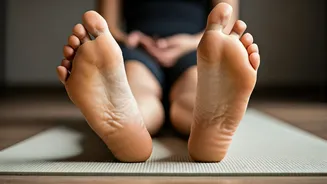The Rise of Rest
The travel industry is witnessing a new wave of wellness: sleep tourism. This trend focuses on providing dedicated retreats that promote better sleep,
acknowledging the importance of rest for overall health. These experiences are designed to optimize sleep quality and duration, which differs from conventional wellness retreats that might focus on fitness or spa treatments. Sleep tourism destinations go above and beyond, implementing personalized sleep consultations and crafting environments conducive to relaxation and rejuvenation. The emergence of sleep tourism coincides with growing awareness of the effects of poor sleep on mental and physical health, making it an appealing choice for individuals seeking holistic wellness solutions. As stress and digital distractions increasingly disrupt sleep patterns, sleep tourism provides a proactive solution and a pathway towards achieving restful, restorative sleep.
Designing Sleep Sanctuaries
At the heart of sleep tourism are meticulously crafted environments designed to promote deep, restful sleep. These retreats often feature advanced technologies and design elements that eliminate external disturbances, creating ideal conditions for sleep. Blackout curtains, soundproofing, and optimal temperature controls are standard, helping guests achieve a tranquil atmosphere. Moreover, these destinations frequently incorporate expert consultations. Guests might undergo sleep assessments to identify individual sleep patterns and needs, creating personalized strategies. Some retreats offer sleep coaches, providing guidance on establishing healthy sleep habits and addressing underlying issues. The focus is always on offering tools and creating routines that can be easily implemented at home. By combining the knowledge of experts with the benefits of restful environments, sleep tourism retreats provide a comprehensive strategy for improving overall well-being.
Beyond the Bed
While sleep tourism emphasizes sleep, its benefits extend beyond just a good night's rest. Many retreats offer additional wellness activities that support and enhance sleep quality. Mindfulness sessions, yoga, and meditation classes are incorporated to reduce stress and promote relaxation before bed. Healthy, sleep-enhancing meals are a standard element of these retreats, with an emphasis on nourishing foods. Therapies like massage and aromatherapy are often employed to ease tension and enhance the overall experience. The holistic approach recognizes the relationship between sleep and other aspects of life. The aim of sleep tourism is to offer guests the chance to establish routines that will improve their sleep and overall well-being, creating lasting improvements in health and overall quality of life.
Locations and Experiences
Sleep tourism can be found in various forms, from luxury resorts to specialized wellness retreats. Destinations include places that naturally promote relaxation. For instance, locations in remote locations and natural settings with clean air and quiet surroundings are typical. Some sleep tourism experiences involve immersive programs, lasting several days or even weeks, focused on transforming sleep habits. These extended stays offer a more intensive approach, combining personalized consultations, tailored treatments, and educational workshops. Moreover, many retreats allow for a degree of personalization, offering programs that align with individual requirements and choices. Whether it is a weekend escape or a longer immersive experience, sleep tourism caters to various preferences, enabling travelers to take time for rest.
Future of Slumber
As the travel and wellness industries grow, sleep tourism appears to be ready for further expansion. Increased awareness of the significance of sleep and a growing desire for holistic wellness solutions will likely drive this trend forward. Innovation continues, with retreats exploring cutting-edge technologies to enhance the sleep experience. The trend anticipates a focus on sleep science, with research playing a bigger role in developing and refining sleep strategies. Ultimately, sleep tourism reflects a broader shift in attitudes towards health and wellness. By focusing on sleep, sleep tourism offers a practical pathway to a healthier, more balanced life. The trend suggests that the pursuit of rest, relaxation, and rejuvenation will remain critical as travellers seek to improve their lives.


















